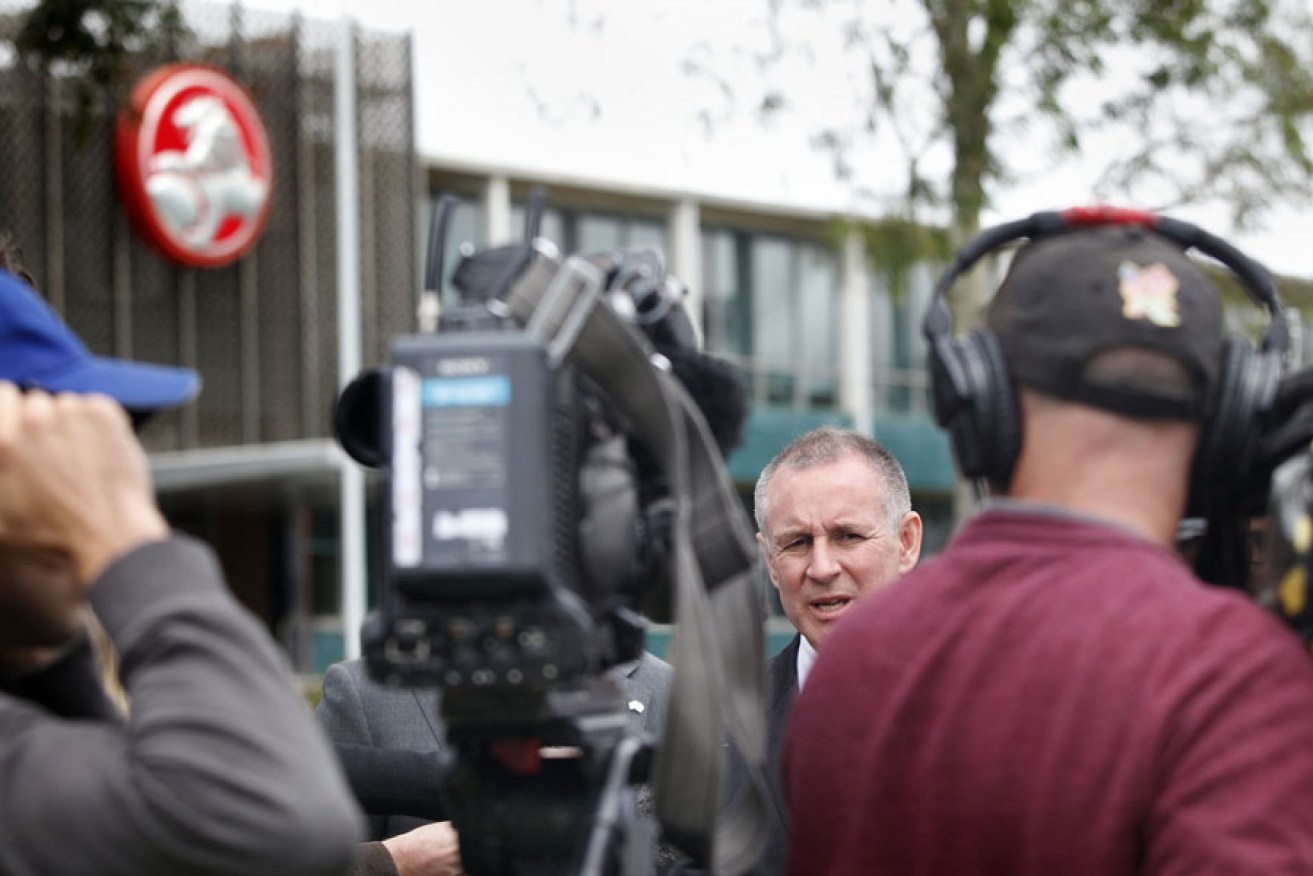Adding up the cost of a Holden closure

Premier Jay Weatherill talking to the media at Holden's Elizabeth plant on Friday.
The idea of further government support for the ailing automotive industry (AKA the Holden problem) generates considerable political and economic debate.
For economists and business academics, it comes down to the role of industry assistance programs, and the role of government in economic development. This well-traversed literature covers arguments of market and government failure, but the varied views presented have not dulled the arguments.
The debate becomes more intense when moving from general principles to the case of the auto assembly sector in Australia.
The surge in the Aussie dollar (even though it has come back) has significantly challenged manufacturing in general, reinforcing the seemingly inevitable decline in the sector.
Will GMH, Toyota and Ford follow the experience of Mitsubishi?
Those advocating government support for the sector often focus on the skill transfer effects that automotive manufacturing brings to the economy as a whole.
But a second part of the debate are the implications at a regional level – what impact is there on the economies of regions that depend heavily on the automotive sector, specifically Melbourne and Adelaide?
Our study on the contribution that the GMH manufacturing facility in Elizabeth makes to the South Australian (and northern Adelaide region) economy was recently presented to the Productivity Commission inquiry.
There are currently 1,750 jobs at GMH and the operations purchase A$530 million of supplies per year from core suppliers based in Adelaide. Through direct and first round (GMH and its direct suppliers) activities the operational spend of GMH in 2013 is estimated at A$750 million, contributing A$400 million to South Australia’s Gross State Product (GSP) and supporting 4,340 jobs.
Then there are the full flow-through effects of this activity (such as the purchases of suppliers, and spend of wages and salary income).
When modelled, the total economic activity linked to GMHs operations was estimated in 2013 to be a A$0.9 billion contribution to GSP, and 9,500 jobs and a contribution of $53 million per year to the state taxation base. (The model used a simple input output framework, which evidence supports as sufficient for order of magnitude long run modelling of impacts at the regional level).
But if GMH were to cease activity, the impact would ultimately depend on how the local economy responds.
Weighing up the reaction
On the one hand there would be freed up resources now available for other activity (with a deflationary effect on wages and property prices, increasing the competitiveness of other sectors of the economy). In this case, the impact on the state economy of GMH closing would be offset by growth in other sectors – reducing the impact to as low as an estimated 3000 jobs lost.
On the other hand, the much more likely situation is that GMH’s closure would make some major suppliers uneconomic, and the state economy would lose the supply chain that services GMH in Playford, but also the other activity that these businesses undertake (supplying into other sectors or states).
Allowing for this effect, the total economic activity lost in the state would be of the order of A$1.24 billion of GSP, 13,200 jobs and A$72 million per year to state taxes.
There remains the question of what will happen to GMH and the level of activity it supports in Adelaide into the future – with or without government support.
The answer to this question without support is predictable – GMH will not survive.
The answer to the question with support is more problematic – support may just buy time, and the contribution will decline over time. There is also the need to consider the benefits from alternative uses of the funds that have and might be applied to GMH support.
The evidence says Adelaide will struggle to make up the gap left in the absence of Holden, that this does create issues in a national context, and therefore an effective and strategic approach is essential to this problem.
The Productivity Commission findings will be critical – but as we know from current rumour it may well be too late to prevent or undo all the damage.
Barry Burgan is Professor of Business at Torrens University Australia.
This article was first published at The Conversation.




